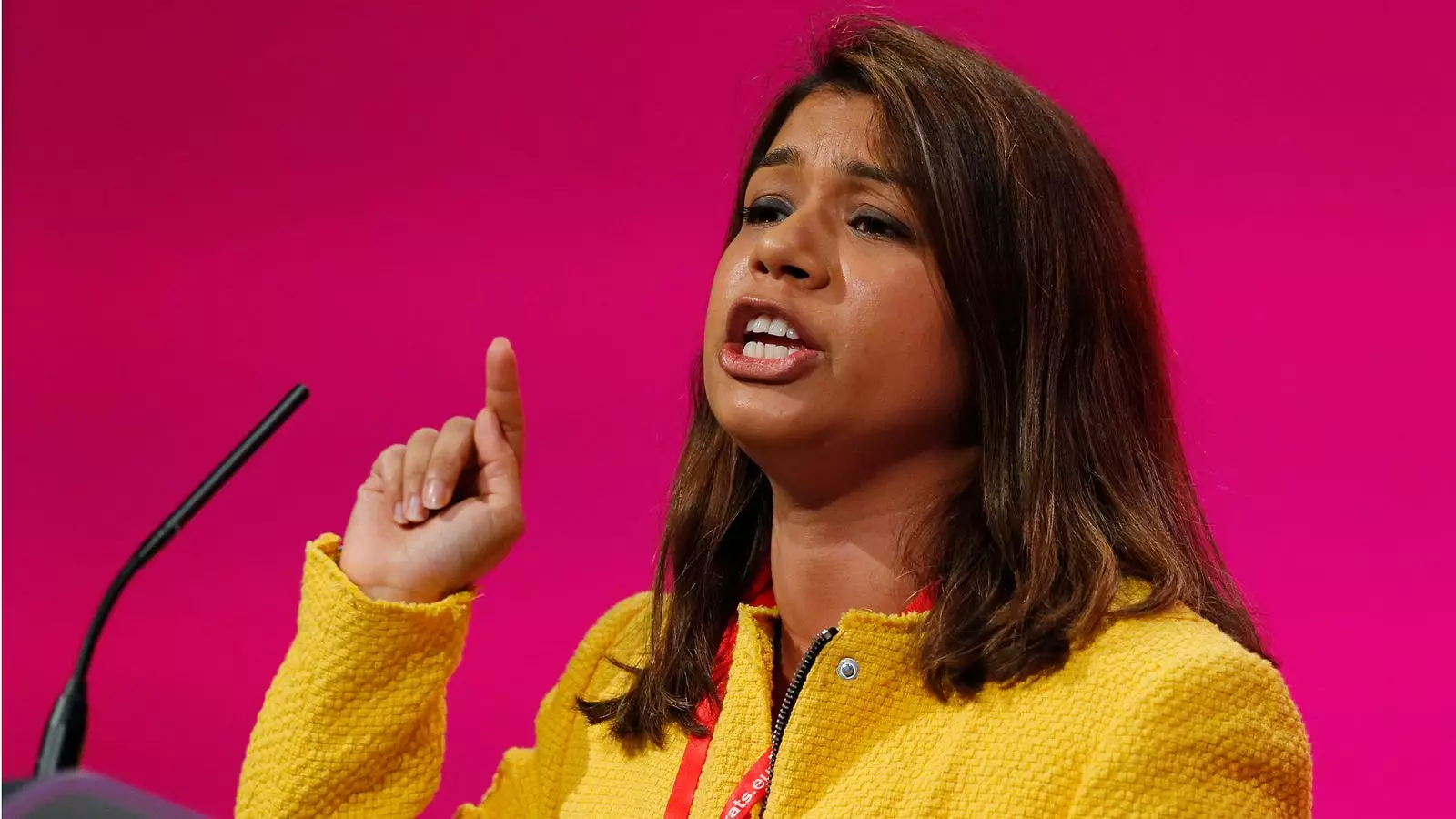In recent developments, Tulip Siddiq, the anti-corruption minister for Bangladesh and a Member of Parliament, has found herself embroiled in serious allegations. Investigators in Bangladesh have suggested that Siddiq had a hand in the illicit allocation of valuable land within a diplomatic development project near Dhaka. A legal affidavit sourced by Sky News lays bare claims that Siddiq exerted undue influence over her aunt, the former Prime Minister Sheikh Hasina, to secure land plots ostensibly for her family members. These accusations are not merely a political spat; they reflect deeper issues regarding governance and the intersection of personal and public interests.
The document filed by the Anti-Corruption Commission alleges Siddiq pressurized officials to facilitate the acquisition of land under dubious circumstances. The gravity of these claims cannot be understated; if proven true, they expose significant moral and ethical lapses within the political structure of Bangladesh. The implications stretch beyond personal accountability, calling into question the very foundations of governance and the sanctity of public service.
The political atmosphere surrounding these allegations is also tumultuous. Following weeks of unrest that compelled Sheikh Hasina to flee the country, the new government has initiated investigations into past administrations, framing ongoing inquiries into corruption as a matter of national integrity. Tulip Siddiq’s ties to the Awami League, a political party enduring increasing scrutiny, amplify the complexity of her situation.
Interestingly, prior documents already linked Siddiq to financial improprieties associated with other political activities, including a nuclear power project. The emerging narrative positions these allegations as part of a broader tapestry of political rivalry and corruption, complicating public and political responses to her actions.
A source from the Labour Party has vehemently denied the allegations against Siddiq, asserting that no evidence has materialized to substantiate the claims. This proactive defense emphasizes how often the political arena is fraught with disputes that blur the lines between fact and political maneuvering. The intricate web of accusations raises critical questions about the reliability of sources and the motivations behind public claims.
Call for Political Accountability and Transparency
A clarion call for accountability is echoing from various corners, including Conservative leader Kemi Badenoch, who has called for Siddiq’s suspension amid the unrest. The existence of a potential conflict of interest, particularly within the realm of anti-corruption—a portfolio that Siddiq currently oversees—has ignited further scrutiny. Such a call highlights a crucial aspect of democratic governance: the necessity of clear lines between personal and public interests.
Experts within the Anti-Corruption Coalition have voiced similar concerns, suggesting that Siddiq’s current obligations should be reassessed in light of the prevailing circumstances. They argue that her positioning within sensitive government roles demands transparency, pointing to the broader implications for governance in a nation wrestling with systemic corruption. The reality is that why emblematically assigning anti-corruption roles to individuals linked to politically sensitive corruptions could severely undermine public trust in governmental institutions.
The allegations surrounding Tulip Siddiq present a critical juncture for political ethics and governance in Bangladesh. While individual accountability is paramount, the wider systemic issues of corruption indicate deeper institutional failures. Such dilemmas often expose not just the failings of individuals but the vulnerabilities within political structures that allow corruption to thrive.
As investigations proceed, the responses from Siddiq and the Labour Party will be closely monitored, for they hold potential implications far beyond personal reputation. The situation is a reminder that governments must continually engage in practices that affirm transparency and integrity. Doing so is essential for rebuilding trust with the populace and for a sustainable democratic trajectory.
The unfolding narrative is not just about one individual or their alleged wrongdoings; it is about the fundamental beliefs underpinning governance, the ethical obligations of public servants, and the future of political integrity. The resolution of this case may well serve as a litmus test for the new government’s commitment to clean governance and ethical transparency in public office.


Leave a Reply